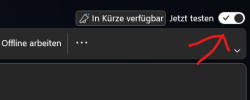- Server operating system version
- Windows 10
- Plesk version and microupdate number
- Version 18.0.47 Update #3
Hello everyone
Since the latest Windows 10 update from Tuesday "update kb5018410 (2022.10)" encrypted smtp no longer work on all our Plesk servers. Many customers have reported that all Outlook versions are affected. Only the Windows update kb5018410 is decisive. If the latest Windows Update kb5018410 is uninstalled, it works again. Do you also have this problem and do you have a solution for it? At the moment I can only tell the customer to deinstall or unencrypted SMTP
it affects all ports 25 587 465 and SSL/TLS and STARTTLS
Since the latest Windows 10 update from Tuesday "update kb5018410 (2022.10)" encrypted smtp no longer work on all our Plesk servers. Many customers have reported that all Outlook versions are affected. Only the Windows update kb5018410 is decisive. If the latest Windows Update kb5018410 is uninstalled, it works again. Do you also have this problem and do you have a solution for it? At the moment I can only tell the customer to deinstall or unencrypted SMTP
it affects all ports 25 587 465 and SSL/TLS and STARTTLS


